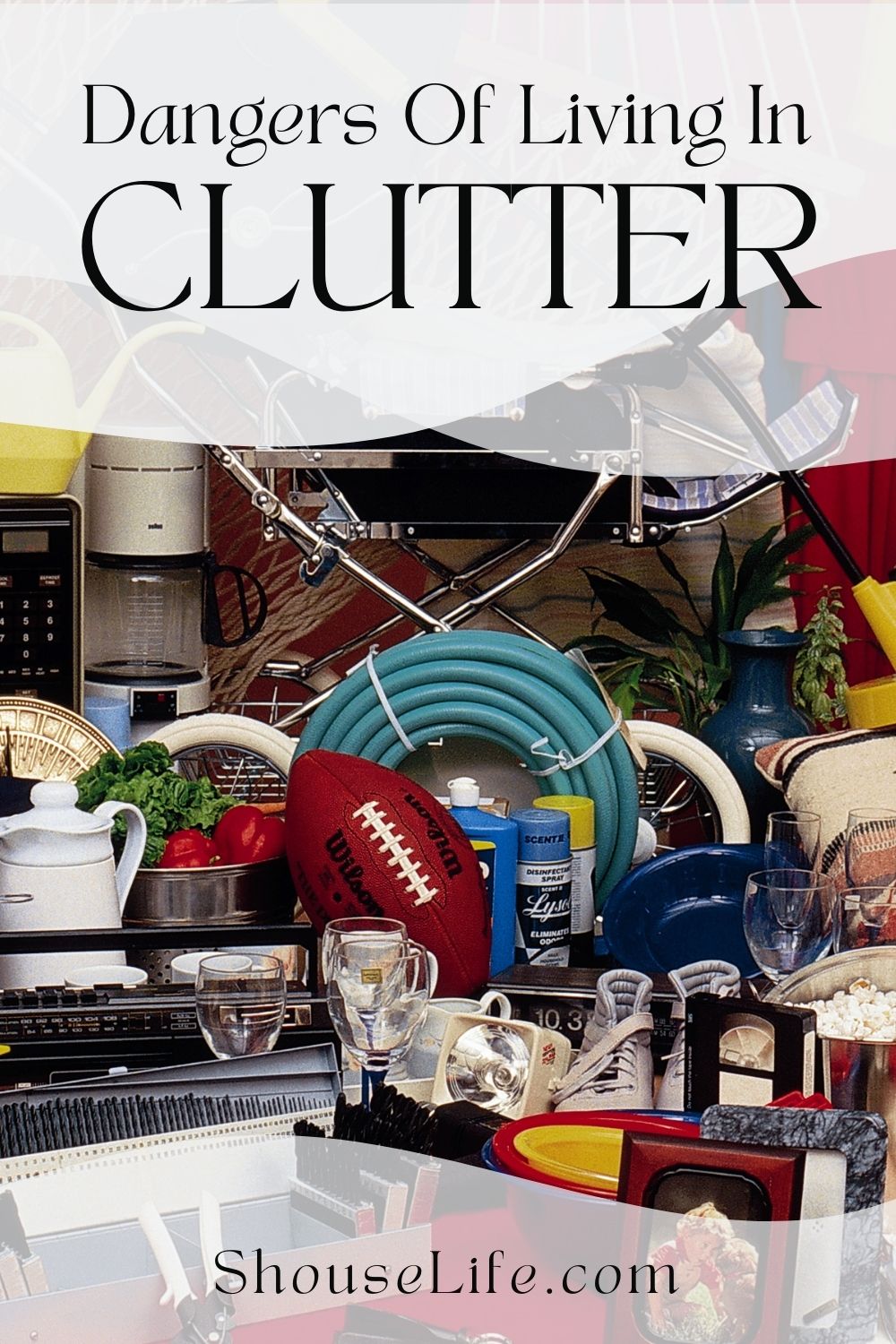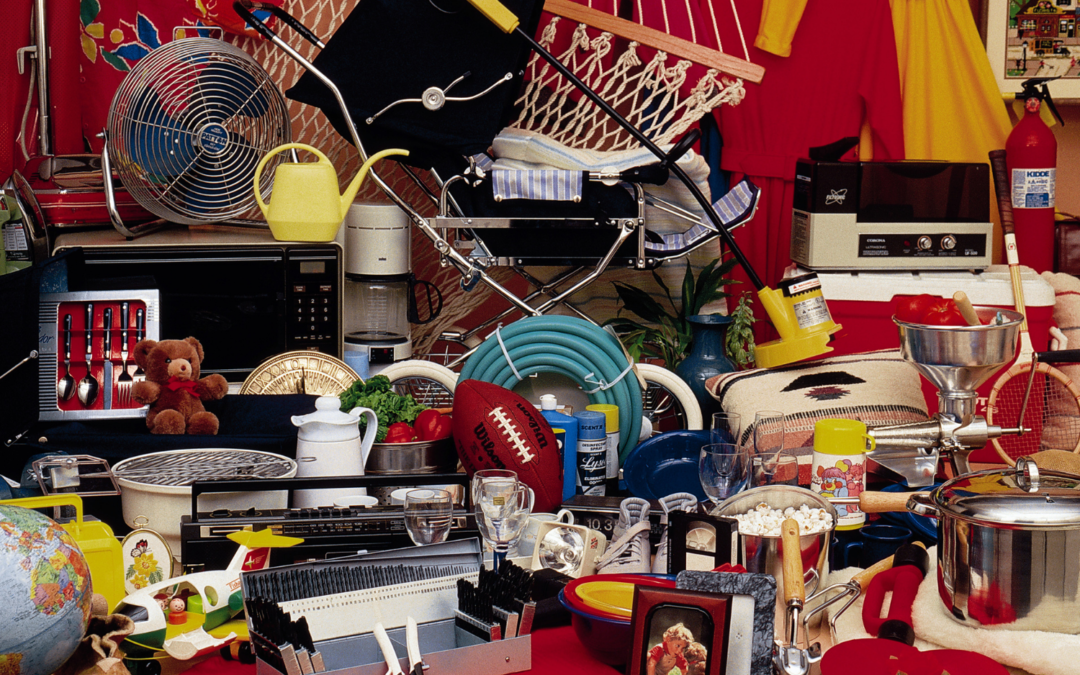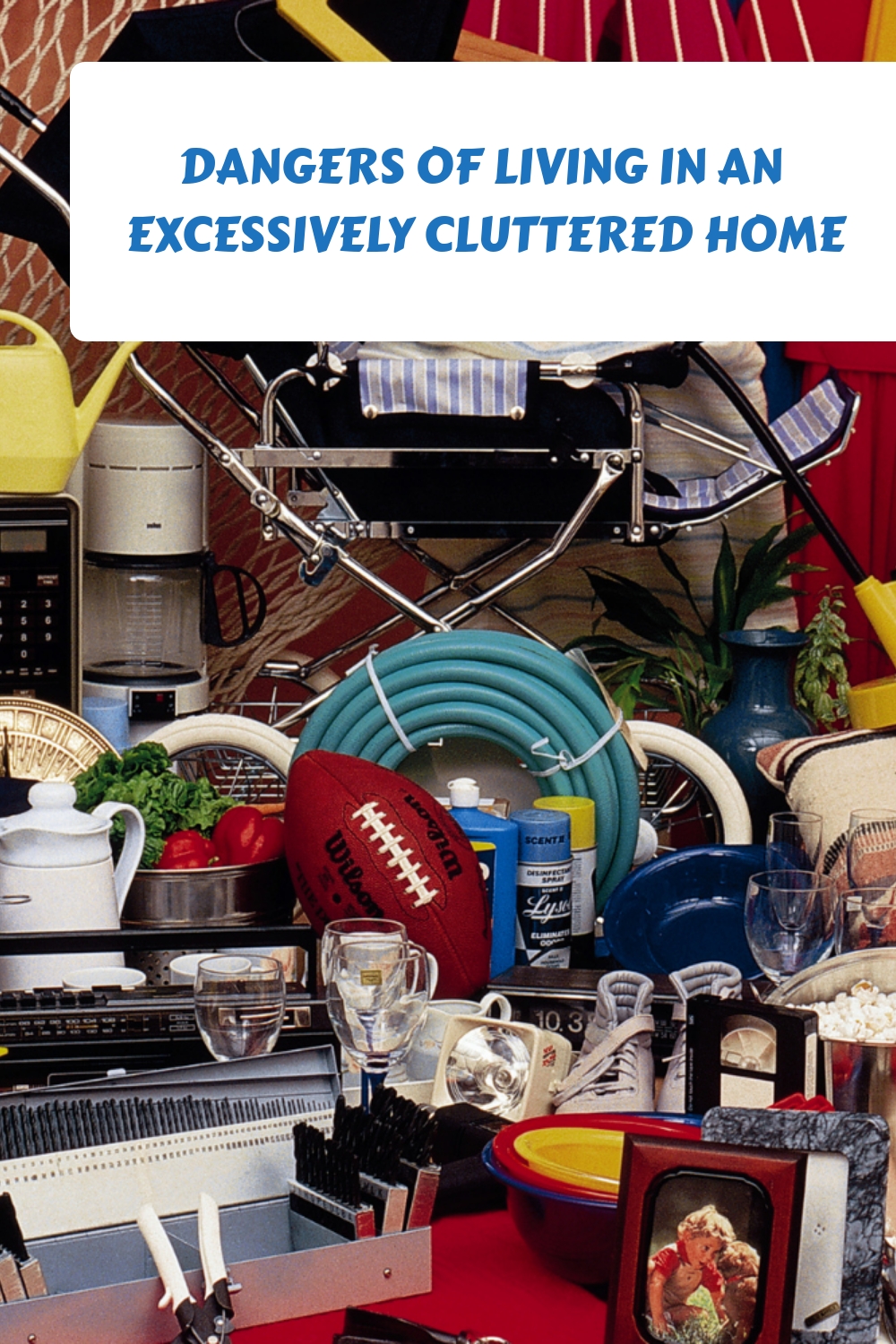Hoarding and clutter are popular subjects for television shows right now. Hoarding is a condition of being unable to throw items away or buying excessive items and keeping them. Hoarders often allow clutter to overwhelm and take over their lives. Excessive clutter can be dangerous to live in and should be avoided. There are different levels of hoarding and clutter but even lower levels of clutter can be dangerous.
Excessive clutter makes it difficult to find what a person needs to function each day which leads to stress. Too much stuff can make it impossible to store food in the refrigerator or freezer. People might not be able to get near the stove or microwave oven to cook meals. Counters become covered with dishes, pots, and pans and the owners of the home cannot get to the sinks to wash dishes.
Too much stuff creates visual stimuli making it difficult to mentally focus for both adults and children which may lead to attention deficit disorder. Physical chaos leads to mental chaos. Recently the scientists at Princeton University Neuroscience Institute performed MRI (magnetic resonance images) studies on the brains of individuals exposed to cluttered and uncluttered images. The images provoked negative responses in the brain to cluttered and unorganized stimuli.
Physical dangers from excessive clutter also exist. Too much stuff in the home can lead to infestations of rodents and insects. Mice, rats, roaches, and bedbugs can be the result of having piles of clutter. Insects and rodents can easily hide within the clutter in homes and will quickly multiply until they overwhelm the home. These invaders bring in diseases that are harmful to humans.
An additional danger from excessive clutter is a fire within the home. Electrical outlets may be blocked by massive amounts of stuff. Electrical cords might be underneath stacks of boxes or clothing and catch on fire.
Piles of paper and clothing can easily burst into flames and make it difficult to have a quick exit from the house. Firefighters may not be able to enter the home to extinguish the fire at its source before major damage occurs. If there are occupants in the home firefighters might not be able to find them before smoke kills the people in the fire.
Allergies can make a person very ill. A home with clutter can be dusty and full of chemicals released from fabrics, paper, and other piles of junk. A house filled with clutter is hard to keep vacuumed, mopped, and dusted. Air quality is reduced and adults and children can develop respiratory illnesses or asthma. It can be easier to trip and fall in a clutter-filled home due to things being stacked around on the floor combined with electric cords. Boxes can slide and move around and fall on a child or older person as well. If a person does fall or get injured it would be difficult for emergency medical personnel to enter the home to assist the injured person.
Cluttered homes often have nonworking appliances, furnaces, or air conditioners. Often the water pipes leak or break. People who have these conditions may be too embarrassed or afraid to have strangers come into their homes to make the repairs. The home then becomes more unhealthy and dangerous because of water damage and mold. People may suffer health issues from being cold or hot due to not being able to have the air conditioner or furnace repaired.
Psychologically hoarding and excessive clutter can be unhealthy for individuals and family groups. One person may grow to resent or be angry toward the person who keeps too much stuff. Embarrassment about the home may cause people to isolate themselves from outside family and friends. Children who grow up in a cluttered home will assume this is normal and may repeat this pattern.
People who clutter need help understanding why they clutter. Perhaps they are depressed. They may be using the clutter to keep out the outside world. Someone might be overwhelmed with health issues and unable to do the physical work required to reduce clutter and become organized. Today there is a greater understanding of why people have excessive clutter in their homes and professionals to help get rid of the clutter and make the home safe again.




